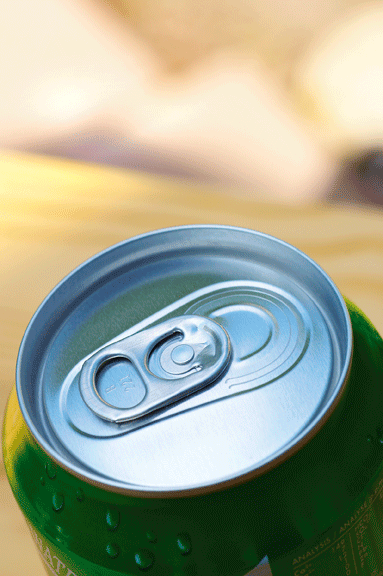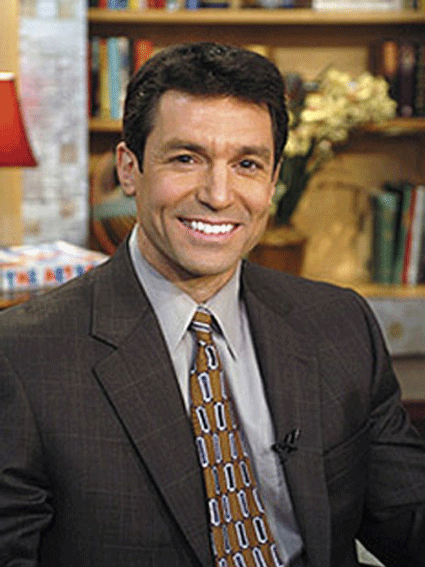
Diet and Health

Eliminating Soda-based Obesity
My friend and colleague at Yale, Professor Kelly Brownell, joined with the New York City health commissioner, Dr. Thomas Frieden, to propose a small tax on soda as one strategy to help fight the trends in childhood obesity.
In response to their commentary published in the recent New England Journal of Medicine, the president of the American Beverage Association, Susan Neely, had this to say, according to the New York Times: "We agree that obesity is a serious and complex problem. It defies both science and common sense, however, to think singling out one product as a unique contributor to obesity will make a dent in the problem."
We will return to common sense -- my main topic -- shortly. For now, let's talk about soda.
Do we have evidence linking soda consumption to obesity and related ills? Indeed we do, some of it quite compelling, much of the best work by Dr. David Ludwig and colleagues at Harvard -- and the most recent evidence rather hot off the presses in the form of an article in the April 2009 issue of Diabetes Care.
In that paper, researchers at the University of Texas reported a strong association between daily intake of even diet soda -- and the occurrence of metabolic syndrome, and type 2 diabetes. However, to be fair, there are studies -- consistently funded by the beverage industry, as fate would have it -- that show just the opposite, a lack of clear association between soda and obesity.
I am untroubled by this apparent ambiguity, as you should be.
For one thing, we have epidemiologic science showing childhood obesity to be an incontrovertible fact. We have the science of physiology to confirm beyond all doubt that obesity is the result of too many calories consumed relative to calories expended. And we have the cold hard data from nutrition laboratories to tell us that soda is a concentrated source of sugar and calories in the absence of any redeeming nutritional benefit.
If there is a "reasonable" number of total calories a child might consume each day, the more of that total made up by soda, the less room there is for calories from vastly more nutritious sources -- just about anything else! -- before the relevant cap is exceeded. There are, after all, only two places for calories from soda to go: They can make up part of the appropriate daily intake of calories, or they can be an addition to it.
If the former, whatever portion of daily calories soda represents are empty and useless and non-contributory to health (throwing relatively random nutrient supplements into the brew does not fix this!). If the latter, then soda is a de facto cause of obesity, because that's exactly what excess calories do. There really is no third choice. So much for ambiguity.
The principal objection to a very slight soda tax is just that: a principle. Namely, the principle that Big Brother shouldn't tell us what to do.
 |
By: Dr. David L. Katz* |
But we don't, in general, make well informed purchase decisions based on robust knowledge of product, options and implications (subscribers to Consumer Reports may be the exception). We are persuaded and seduced by marketing.
And since the companies that make the most money have the most money to spend on marketing, the rich get richer -- and we buy the products the biggest companies sell, not necessarily the products that are best for us, or our children. Does it really help you sleep better at night knowing your Big Brother lives on Madison Avenue, rather than Pennsylvania Avenue?
If you don't see marketing as Big Brother, I don't see how a small tax on soda is any more so. Both are simply influences on our decisions -- attempts at persuasion -- not commands. And both come in the form of a "tax" of sorts -- since the costs of products are suitably inflated to fund the marketing of those very products. When the government imposes a tax, at least it's there for all to see.
Now, let's return to the more fundamental issue of common sense, raised by the American Beverage Association. Let's face it -- what would really defy common sense is to think that the beverage industry would support a tax on soda -- no matter how much good it might do.
I trust we can all accept the fact that tragically, from time to time, avalanches kill people. But what if we investigated a lethal avalanche by looking for the culpable snowflakes? We could ask the question of each and every one of billions of snowflakes: Was this the lethal one? Is this the perpetrator?
The answer in every case would be: no. A snowflake can't hurt or kill anybody. By the end of our investigation, we would have exonerated every snowflake -- but there would, unfortunately, still be the fate of the dead skiers or hikers to account for.
The resolution of this "whodunnit?", of course, is that the snowflakes in an avalanche are each a necessary, but none a sufficient, component of the killing force. Altogether, they are guilty -- each, alone, is innocent. The entire avalanche must be prevented to save lives.
The myriad causes of obesity in modern society are just like that. No one thing is responsible for epidemic obesity -- but many factors combined create an irresistible, obesigenic onslaught with all the force and fury of an avalanche. Brownell and Frieden state explicitly in their article that taxing soda won't "cure" childhood obesity on its own. They recognize it as one small effort among many to contain the avalanche of obesigenic factors into our daily lives, and into the lives of our children. They, as I, favor many other efforts that, combined, would represent the anti-obesity equivalent of effective and comprehensive avalanche control.
I fully support the Brownell/Frieden position on soda. But more importantly, I support the call for common sense issued by the American Beverage Association itself.
The beverage industry would have us expend our time and effort exonerating their snowflake. To my read, this goes one step beyond a mere defiance of common sense -- it's a snow job.
* Dr. David L. Katz is an Adjunct Associate Professor of Public Health
and Director of the Prevention Research Center at the Yale University School of Medicine.
He is and Editorial Advisor to Prevention Magazine, Columnist for O, the Oprah Magazine,
and a Medical Consultant to ABC News. He may be reached at www.davidkatzmd.com.